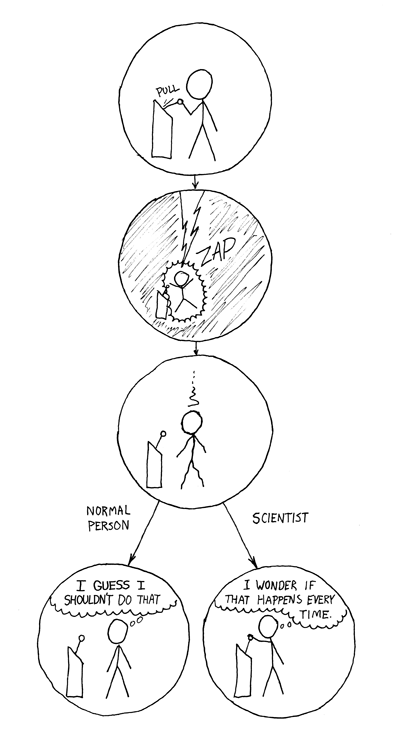ahmo
Senior Member
- Messages
- 4,805
- Location
- Northcoast NSW, Australia
I found this an interesting discussion on what defines Science. But maybe I'm a newbie to this.
http://theweek.com/article/index/268360/how-our-botched-understanding-of-science-ruins-everything
http://theweek.com/article/index/268360/how-our-botched-understanding-of-science-ruins-everything
Here's one certain sign that something is very wrong with our collective mind: Everybody uses a word, but no one is clear on what the word actually means.
One of those words is "science."
Everybody uses it. Science says this, science says that. You must vote for me because science. You must buy this because science. You must hate the folks over there because science.
Look, science is really important. And yet, who among us can easily provide a clear definition of the word "science" that matches the way people employ the term in everyday life?
So let me explain what science actually is. Science is the process through which we derive reliable predictive rules through controlled experimentation. That's the science that gives us airplanes and flu vaccines and the Internet. But what almost everyone means when he or she says "science" is something different....

